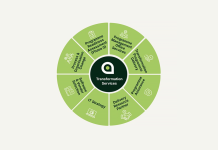Garry Jones, CEO of Perfect Channel, discusses the UK’s pandemic procurement issues and proposes that well-used tech would improve Government efficiency
The current pandemic represents the most significant test of Government in recent memory. To inhibit the spread of the virus, the UK Government has had to co-ordinate an extensive response across a number of organisations, and in doing so, public organisations have had to focus on the rapid procurement of a substantial number of goods and services.
More than 8,600 pandemic-related contracts worth a total of £18 billion were awarded by the end of July 2020. However, questions have been raised regarding the efficiency of such procurement processes.
Inefficient procurement
The media landscape has become dominated by accusations of inefficient procurement. Legislation has created inefficiencies allowing for contracts to be awarded directly to suppliers as long as “there are genuine reasons for extreme urgency”. Given that the Government was faced with an unprecedented situation, where the ramifications of failure could be devastating, it would be incorrect to suggest that, in acting as they did, they were in breach of the law. However, it could be argued that the Government came up against some of the risks associated with direct procurement; principally, bias, conflicts of interest, improper due diligence, and poor transparency.
Paying away large commissions to foreign intermediaries, ordering £122 million of unused surgical gowns and allowing orders to be executed with no tendering or competition, indicates a lack of knowledge, expertise or business logic, and has wasted large amounts of public money, while also increasing the time taken to actually order important equipment.
Given these outcomes, it is clear the Government could benefit from optimising its procurement processes using new technologies. Not only would such solutions allow the Government to realise its aims of timely procurement, it would also provide a remedy for the inefficiencies associated with the direct procurement processes.
The technology solution
The pandemic is a key time to introduce a digital marketplace, allowing the UK Government as the buyer to gain choice, value, and efficiency. Marketplaces prevent overspend by bringing together buyers and sellers to transact at an optimal price that is both transparent and fair to all involved parties. Once this trade occurs, it is then displayed as a discovered price, which is subsequently fed back into the market. This price transparency provides buyers with greater awareness of supplier options, increasing competition among suppliers, and creating opportunities for large purchasers to drive scale advantages. Digital marketplaces also provide faster throughput times due to superior IT and logistics capabilities.
Over the past two decades we have also witnessed the evolution within several industries, from inefficient ‘analogue’ processes to ‘digital trading’, which offer substantial increases in efficiency, wider distribution channels, more inclusion, speed of transaction and velocity of trading. These digital platforms also provide a reliable audit trail, reducing back office costs while meeting enhanced regulatory and compliance requirements.
The financial service sector has led the way in electronic trading and processing, but lately many real economy industries have benefitted from this transition, including insurance, logistics, commodities and procurement.
How these solutions can be implemented in reality
Government departments should commission already deployed new technology to achieve the goals of efficient procurement at the lowest possible cost to the British taxpayer. It is also important that systems are customised for specific use in specific departments rather than deploying a one size fits all approach across government activities.
There are many different models that should be put forward for consideration. These include auction programmes for direct access with variants of auction methodologies involving regular but defined auction timeframes, request for quote marketplace systems, and full interactive markets. Data science algorithms can further increase the decision-making efficiency in many, but not all, proposed cases. Underlying this is the primary goal of bringing buyers (Governmental bodies) and sellers together in a transparent, yet efficient way whilst keeping transaction costs to a minimum. A focus on UK-based suppliers, willing to produce vital goods at a market price, could be a first step, before carrying out a broader search internationally.
The stringent time frames in which the Government had to procure urgent resources resulted in some undesirable side effects, namely overspend and improperly sourced items. By utilising innovative digital marketplace technology, the Government would be able to reconcile their two aims of timely procurement at a low cost. We must see investment into digital marketplaces and auction technology, overlain with artificial intelligence in the form of data science, to optimise decision making. By doing this we can ensure we improve our current position and are prepared for the next crisis.











